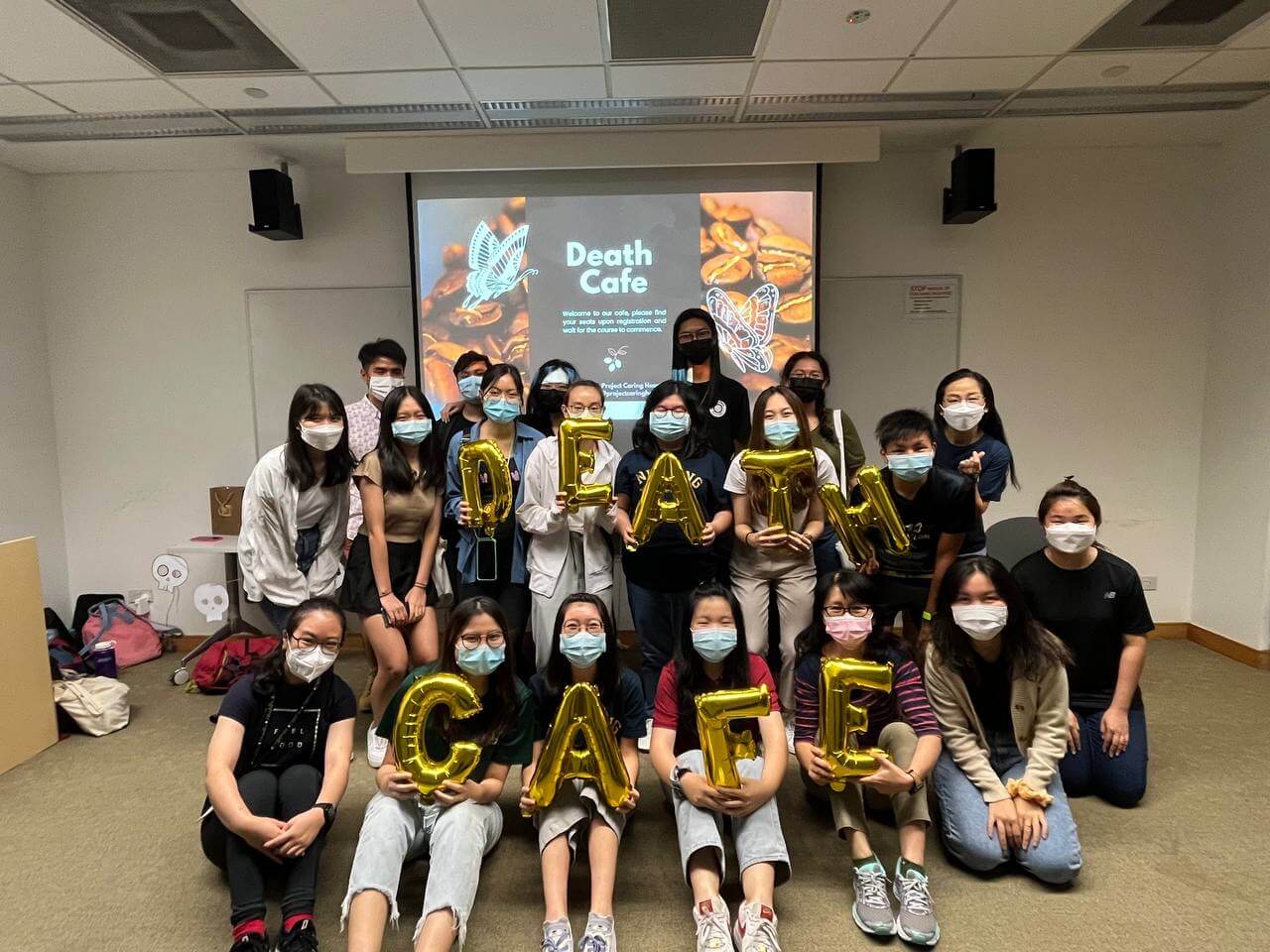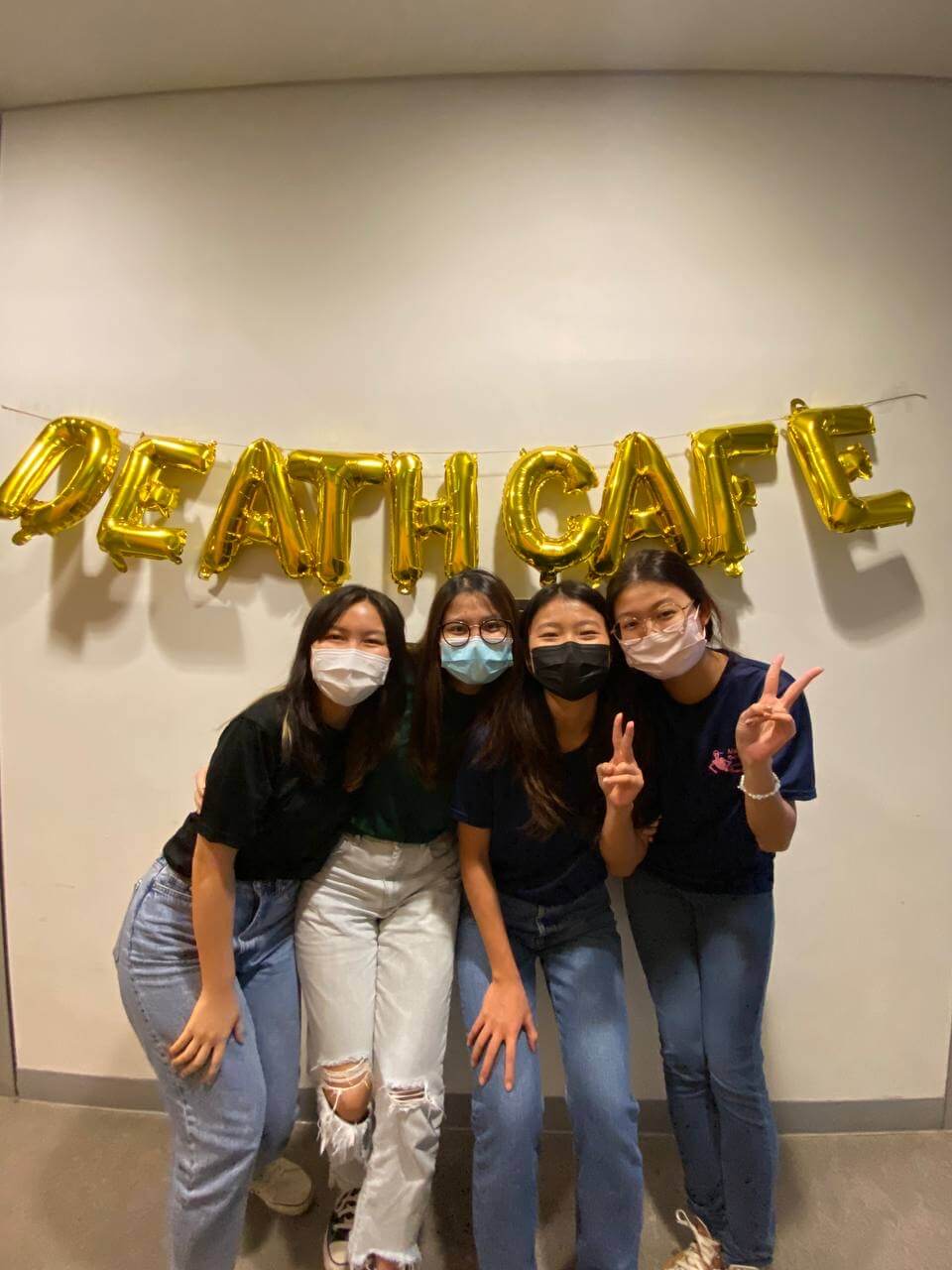What would you do if someone brought up death and dying while you’re enjoying a hearty dinner? Would it make you feel uncomfortable?

Even as society advances and modern sensibilities shift, the use of the word “dies” still evokes discomfort.
Euphemisms are preferred: someone has “passed away” or “departed” are deemed to render the communication of this most inevitable fact and its absorption, a little more bearable.
Although common in the not-so-distant past among a great many cultures around the world, talk about death and dying remains a topic that is best dodged or avoided entirely.
However, a movement that seeks to empower and encourage these difficult conversations has been gaining traction worldwide: Death Cafes.

Introduced in the United Kingdom, Death Cafes encourage participants to converse about death and dying, often over a meal. Although the concept and setting may seem like strange bedfellows, the aim is to eradicate the taboo surrounding death and normalising conversation on the topic.
The Project Caring Hearts group, comprising student volunteers from Alice Lee Centre for Nursing Studies, National University of Singapore (NUS Nursing), decided to introduce the concept in Singapore.
Vanessa Tan and Oide Kei, Directors of Project Caring Hearts, started this project to encourage more meaningful conversations on the topic of death. “We can’t run down a taboo overnight, but we can work on it one conversation at a time,” said their Instagram invite to the event on 16 and 17 August 2022.
The first of its kind in NUS, the event proved to be a success — the Death Cafe was fully signed up for, attended by 40 participants. Two educators specialising in palliative care also attended the Death Cafe.
Participants discussed three themes during the event: perception of death, religion and preparing for death. Although volunteer facilitators were present, they did not attempt to correct any opinions, and only encouraged and maintained a safe space for discussion.
Facilitators also shared the process of Advanced Care Planning (ACP) and Lasting Power of Attorney (LPA) with participants. The ACP is the process of planning for future health and personal care through a series of voluntary, non-legally binding conversations with your family and doctors while the LPA is a legal document that allows one to appoint one or more people to help make decisions on behalf when he or she is unable to.
Among the issues discussed and explored included gender roles in death rites and how they impacted families, death by suicide, and how different religions viewed death.
“Death should not be a taboo topic,” said Year 1 Nursing student Clement Tan.
“The dead do not have to deal with the aftermath of death — the burden lies with the living.”
The session, he said, helped him realise the need to be more mindful in preparing for the inevitable, and that it was important to have one’s last wishes made known to the next-of-kin and healthcare providers, if any.
Other conversations that took place during the teatime event included how to manage grief when losing loved ones, navigating cultural norms and expectations, and even what would constitute a good death.
“Death is the end but it is also an event that brings meaning to life,” said a Death Cafe participant.
Another said that although there was sadness when hearing the experiences of peers in losing loved ones, there was also assurance that there were shared perspectives on death.
In their post-event feedback, most participants agreed that conversations about death should take place more often.
“During the event, participants bravely shared and discussed their thoughts, fears and hopes about death with others,” says Vanessa.
“We were extremely grateful to them for their willingness to share these close and personal thoughts with others, as well as for having an open mind to listen to others.”
Project Caring Hearts aims to make Death Cafe a yearly event and wants to involve more educators well-versed in the topic of death while reaching out to more people.


